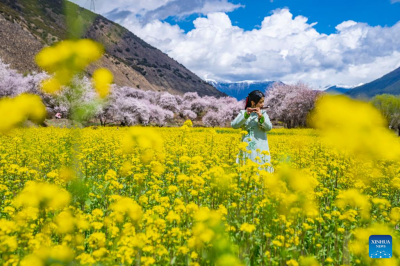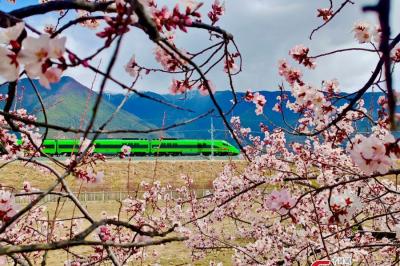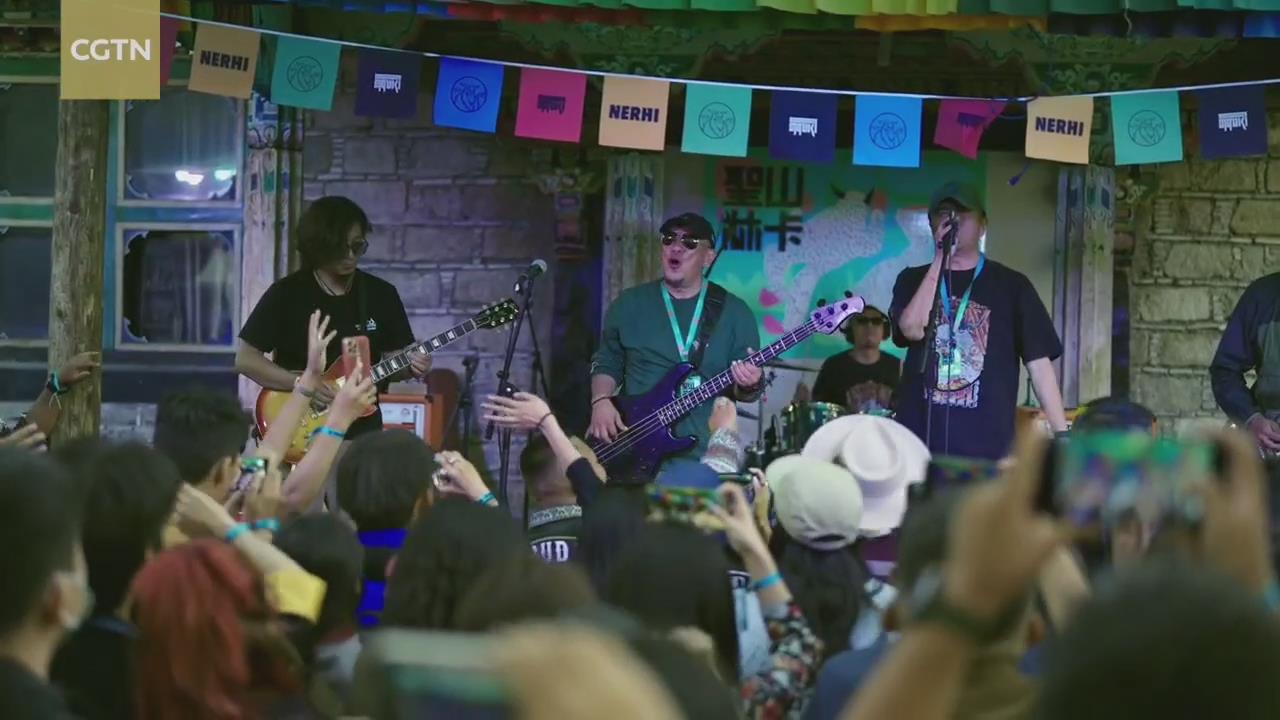| LHASA, Nov. 13, 2023 -- Nyima Tsamgyu, 38, still remembers the scene some 15 years ago when she was teaching in a row of mud houses -- the first primary school she worked at on Qinghai-Tibet Plateau, known as "the roof of the world."
There was no electricity, tap water or mobile signal in the Xoru Primary School in Maintang Township, Baingoin County, Nagqu, a sparsely populated city situated at an average altitude of over 4,500 meters and more than 300 km from Lhasa, capital city of southwest China's Xizang Autonomous Region.
During winter, when the lowest temperature tumbled to minus 30 degrees Celsius, the houses were partly heated through traditional methods such as burning dried yak dung. The students had to wear thick clothes to stay warm, even indoors, and the school would cancel sports classes in winter.
Gone are those days. The Xoru school has been merged into the Maintang Township Primary School, which is equipped with heating, and modern classrooms and teaching tools.
BETTER INFRASTRUCTURE
Over the past 15 years, Nyima Tsamgyu has witnessed the changes taking place in the local education sector. She now teaches at the Baingoin County Sinopec Primary School in Baingoin.
"When I just arrived at the Xoru Primary School in 2009, I was reluctant to stay. But now, I don't want to leave Baingoin and I won't," said Nyima Tsamgyu.
According to Ngawang Wangdu, principal of the Baingoin County Sinopec Primary School, the school was funded by China Petrochemical Corporation (Sinopec), China's main oil refiner, under the country's pairing-up assistance program.
In 1994, at the third national symposium on work in Xizang, the central government made a major decision to rally national support for Xizang. Under the policy of pairing-up assistance, some central state organs, provincial-level regions and centrally-administered state-owned enterprises were designated to provide assistance to specific areas in the region.
Located at an altitude of more than 4,700 meters, the school is dubbed "one of the schools closest to the sky under the pairing-up assistance for Xizang."
Covering an area of 79,000 square meters, it boasts facilities including modern classroom buildings, dorms, a playground and a basketball court. It currently has more than 1,320 students, mostly from Tibetan herding families in remote pastoral areas in Baingoin. Nearly half of them are boarding students, with food, lodging and tuition provided free of charge, the principal added.
Xizang is the first provincial-level region in China to provide 15 years of public-funded education, from kindergarten to senior high school.
Daqu Rinchen, vice director of the Nagqu education and sports bureau, said that the government has invested heavily in education in Nagqu since 2012, improving the infrastructure of the schools and guaranteeing the wellbeing of students and teachers.
A series of projects have been implemented, such as the full coverage of heating in all of its 191 high-altitude schools, including village-level kindergartens.
In addition, Nagqu has been promoting educational informatization. This year, 32 computer classrooms and more than 820 sets of all-in-one teaching machines were installed in schools across the city, Daqu Rinchen added.
MORE LEARNING OPTIONS
Nyima Tsamgyu said that students learn a range of different subjects, including math, music, fine arts and computer skills. As for languages, they study Tibetan, Chinese and English.
They are also offered options of playing football or basketball, playing the piano, chanting the Tibetan "Epic of King Gesar" and practicing Guozhuang, a traditional Tibetan dance, during their weekly interest-oriented classes.
"In the past, during winter, students could only wear heavy clothes to attend classes. Nowadays, with the heating provided from October every year, the children can also wear light school uniforms to practice various activities in winter," said Nyima Tsamgyu.
Pema Gyaltsen, a fourth grader at the school, said he loves playing football and basketball with his classmates. "I play forward on my basketball team and center-forward on my football team," he said, adding that he wants to become a police officer in the future.
Years ago when Nyima Tsamgyu explained certain knowledge to her students, she had to rely on the images printed in textbooks. Now with the all-in-one teaching machines installed in classrooms, she can always search for multimedia teaching resources online and show them to the students.
Born and raised in Lhasa, Nyima Tsamgyu considers Baingoin her second hometown. "Maybe because I've been in Baingoin for a long time, I've gotten emotionally attached to this place," she said. "I will work hard to teach the students, so that they will have more opportunities and a bright future."
|
- Home
- News Tibet |Exclusive |China |World |Related News |Latest
- Documents White Papers |Others
- Photo Politics |Economy & Society |Culture & Religion |Human & Nature |Beautiful Tibet |Other Tibetan-Inhabited Area |Exchanges |Related
- Video News |Documentary |Micro-Video |Entertainment
- Art
- Tourism
- In Focus
- About Tibet






